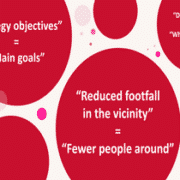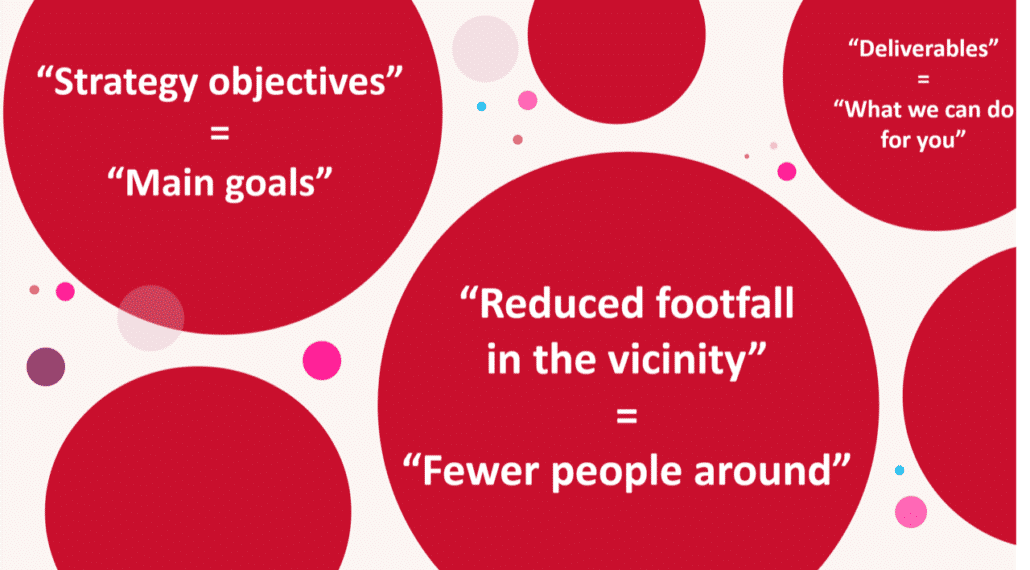Speaking human is a must-have skill
“We need people who speak human”.
So said a Labour Party insider, following the party’s defeat in Hartlepool last week.
Whatever your thoughts about the successes and failures of the various political parties in the UK elections over the past few days, it’s interesting that the need to communicate naturally with your audience, has once again come to the fore.
And yet in so many of our training sessions, it’s clear that the temptation to do precisely the opposite when talking to the media is almost too great to resist. People continue to use phrases like ‘strategy outputs’, ‘deliverables’ and ‘reduced footfall in the vicinity’, even when simpler and more natural versions would surely come to mind if talking to family or friends.
When we ask our clients why this is, the reasons they give range from the need to appear ‘professional’, through ‘speaking to impress’, to avoiding sounding like they’re ‘dumbing down’.
But the truth is, if you speak like this, you’re putting hurdles in the way of people’s comprehension. It means that they have to work harder simply to understand the words you are using, let alone grasp the meaning that lies behind them.

Eric Dixon: ‘It’s not dumbing down, it’s wising up!’
Here at The Media Coach, we call it the Language Ladder. On the top few rungs is the type of language you might use when you are writing a document or a report, including abstract terms and jargon. Down at the bottom is colloquial language – the normal language you would use when having a conversation. Counter-intuitive as it might be, the sensible thing to do is go down-ladder whenever possible.
And far from ‘dumbing down’, clearing the channels of complexity actually allows you to put more intelligent thoughts into the discussion. In short, using simpler language enables your argument to be more sophisticated; not ‘dumbing down’, but ‘wising up’!
So not only does speaking more colloquially mean that your audience is more likely to engage with what you are saying, they are more likely to take the action you are proposing – such as adopting a new way of working (if you’re in business), or voting for you (if you’re in politics), for example.
All this simply by speaking more conversationally.
More naturally.
More… human.
- All Presenters Need a Critical Friend - April 23, 2024
- Wrong Note, Right Place - February 13, 2024
- Why Business Presentations Should Be More Like Stand-up Comedy - January 29, 2024






Leave a Reply
Want to join the discussion?Feel free to contribute!